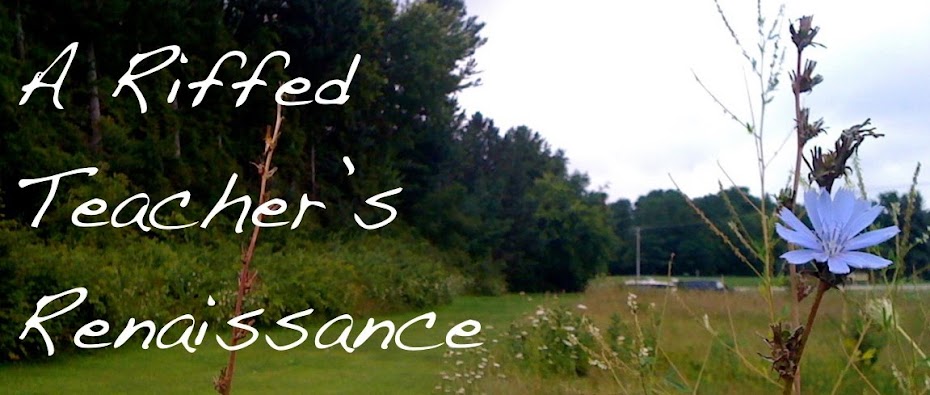 |
| Left: Ralph V. Smith, a.k.a. King Arthur |
Every summer our quiet south side parish would be invaded by a caravan of rusty metal trailers plastered in graffiti art, proclaiming the names of such rides as “The Zipper,” “Tilt-A-Whirl,” and “Amour Express.” On the nights leading up to our annual church carnival, my sisters and I would sit and watch doo-ragged men manipulate sharp, pointy rods as they slipped them gracefully into other mangles of metal, until a strange and magical city rose up from an empty parking lot. As the sun would set, a gaudy silhouette emerged, a moveable skyline that would come to symbolize more than five days of childhood fun. For me, it was a time to observe my father in his natural habitat: a place where his imagination turned inside out, allowing us to see his creative genius in an incandescent, cotton candy dream.
* * *
The last night of the carnival always felt like the end of the world. The stench of stale beer and caramel corn would waft over the late July breeze as feet crunched over plastic cups and torn tickets chucked by ride attendants. The skee ball game adjacent to the church hall doors would blink its lights on and off and then go black as though whispering a final “good night.”
The year of the medieval faire was probably the hardest. It was around midnight, and my friends had
been called home hours before. I, on the other hand, had remained, knowing my father was somewhere nearby. Wandering aimlessly across the blacktop, I stopped to take in the towering skyline, distorted now from already-disassembled chunks.
been called home hours before. I, on the other hand, had remained, knowing my father was somewhere nearby. Wandering aimlessly across the blacktop, I stopped to take in the towering skyline, distorted now from already-disassembled chunks.
“Daddy,” I called out, spotting him engaged in lively conversation with the red-faced ferris wheel operator. “I think you’re my ride.”
My father turned and waved at me with his sly, contagious grin, lifting his white plastic cup to acknowledge me. I studied him in that moment, his blue eyes a dazzling contrast to his tanned face and full white beard. He was still clad in the King Arthur costume he’d donned for the occasion, roaming the faire grounds to perpetuate the illusion.
He kept talking to the ferris wheel guy, laughing to the point of his characteristic cough.
“Daddy,” I said again.
“Yes, my Christina.”
“Are we going home?”
He looked at his watch and mouthed silently, “Five more minutes.”
Knowing that “five more minutes” actually meant something else, I wandered toward the back end of the beer garden that was bordered by a high bamboo fence to keep out the teenagers. I glanced past it, hoping that Jameson Byrne might still be floating around. Earlier that night, he’d walked past me and said, “Hey” as he ran his fingers through his long, dark mop of messy hair. My friend Sandie had nudged my side, and said, “Chrissy, say something!” But I was so stunned all I could manage was a soft gurgling sound akin to a burp. At the ripe old age of twelve, I was convinced that I would marry that mop of hair, that we were somehow destined to be together, our tongues locked in a love affair bound by fate. The fact that Jameson was blissfully unaware of his own destiny made little difference to me; it simply bolstered my determination to bring it to his attention.
No sign of my future husband at the moment, I glanced back at the bamboo fence and smiled. To me, this paltry barrier meant nothing because my dad was Ralph Smith, ruler of all he surveyed. Whenever I wanted, I could tell the policemen demanding IDs at the entrance that I was Ralph Smith’s daughter, and I would be granted admission to the dense crowds stumbling about to the “Beer Barrel Polka.” At that time, my interest in the beer garden had less to do with beer and more to do with the garden--a stinky swell of colorful characters who towered above me like beautiful, beer-swilling giants. Once the cops had slid us in, my friends and I would scissor our way through bodies to get to the stage where my father was hamming it up, and then we’d sneak into the school, which, during carnival time, morphed into a rip-roaring casino. We’d marvel at the classrooms where we took spelling tests and recited multiplication tables, now filled with poker tables and spinning wheels whose clackety-clack would elicit either groans of displeasure or shrieks of delight. Inside the classrooms, each step swooshed up a flurry of losing pull-tabs, like autumn leaves awaiting the inevitable rake. With each swoosh came the lingering hope that one, just one, might have been mistakenly discarded. Cherry, cherry…oh!
As the night went on, the harsh classroom light would cast an eerie glow. I'd stare at the faces of teachers and parishioners who, on a regular day, made us write book reports and pray together in church. In this moment, though, they would suddenly freeze under the lights, a tableau vivant of reality and imagination. A Toulouse-Lautrec rendering of Parisian nightlife filled with shadowy silhouettes.
 |
| Self-portrait in the crowd, At the Moulin Rouge, Toulouse Lautrec |
This was the secret world where I secretly wished I could live, and that was because of my father. To outsiders, he may have been the guy who painted the signs at a church carnival but to me, my father was a Knight of the Round Table, a gentleman, a warrior.
A king.




